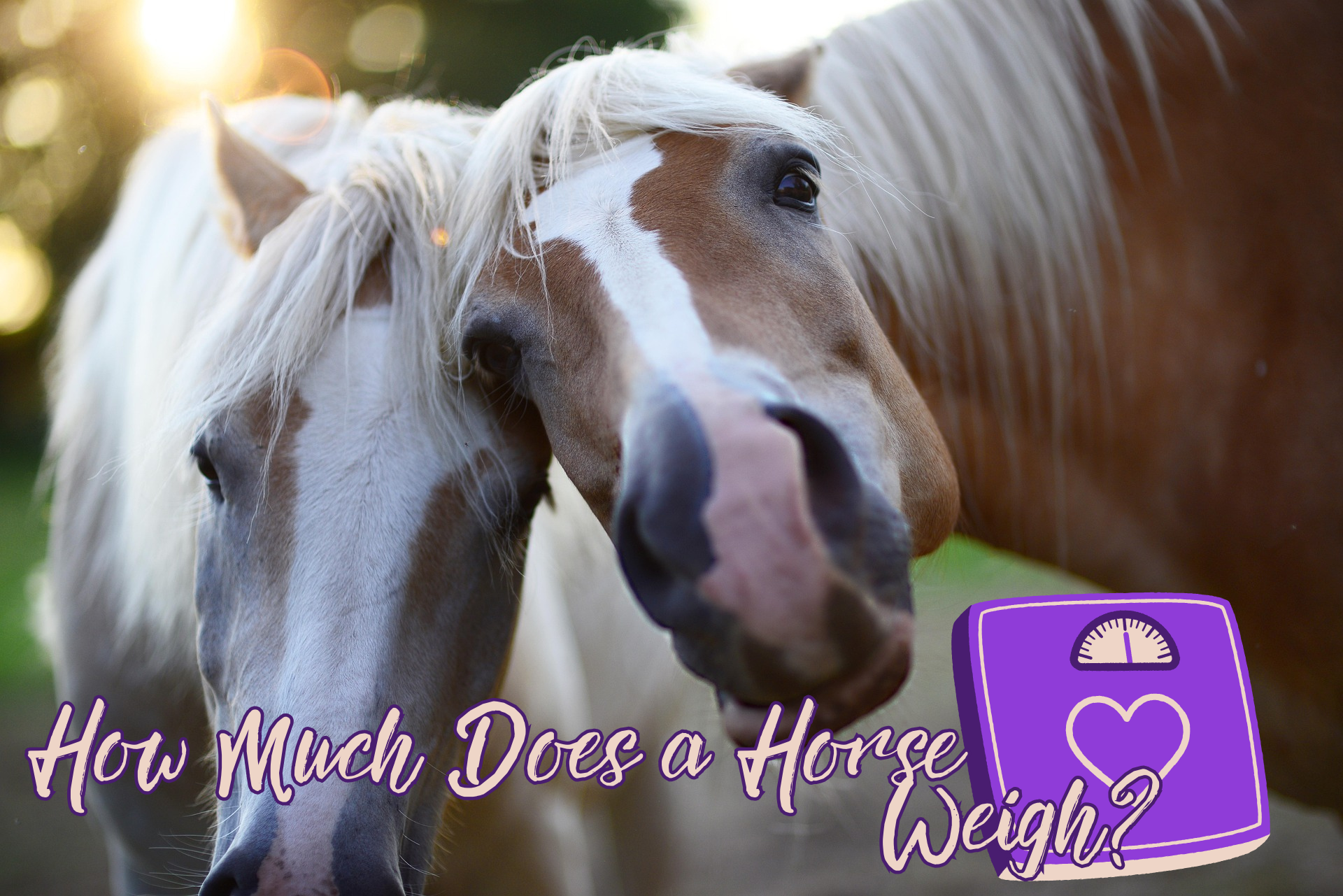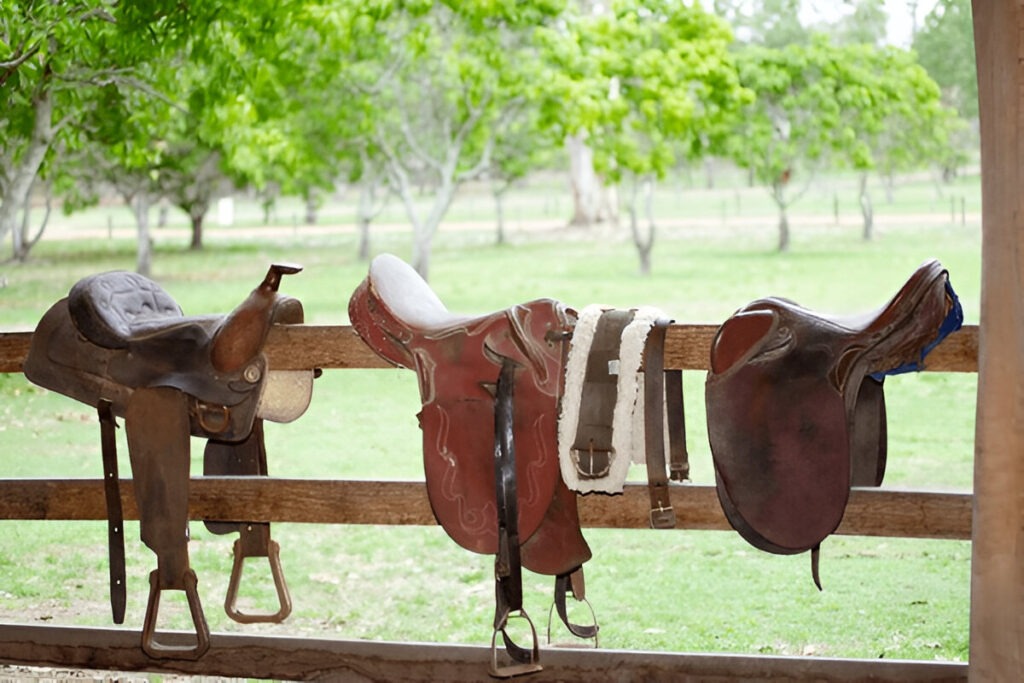How Much Does a Horse Weigh?
Horses are admired for their strength, grace, and athleticism and have varying sizes and weights. A horse’s weight has critical implications on its health, welfare, and performance. The following comprehensive guide navigates the complex determinants of weight in horses, illustrating breed-specific variations, various techniques of measurement, and how maintaining an optimal weight range is a delicate and imperative practice.
Horse Weight: Why It Matters

A horse’s weight is of paramount importance in many areas of its life:
The weight of a horse is a critical factor in his health, performance, nutrition, and management. The optimum weight optimizes the wellbeing of the horse through maximization of quality of life. Their concept, as briefly described above, has weight impact on the following critical areas, which are further explained below.
1. Health
- Musculoskeletal Health: A healthy weight minimizes the chances of stress to joints, tendons, and ligaments. Overweight horses have a greater risk of conditions such as laminitis, arthritis, and tendon injuries, while underweight horses lack the muscle mass to support their skeleton.
- Immune Function: A healthy weight is related to immune health. In case the animal is under or overweight, they may be a victim of impaired immunity and get infections and other diseases.
- Organ Function: Additional weight may pressurize vital organs like the heart and lungs and too little can cause deficiency in nutrients and malfunctioning organs.
2. Performance
- Athletic Ability: Horses of an ideal weight are better prepared for physical demands. Extra weight can reduce agility, speed, and endurance, while being underweight may lead to fatigue and poor performance.
- Stamina: A well-maintained weight ensures that the horse possesses the stamina or energy reserves required for sustained activity. Overweight horses may tire easily, and underweight horses may not have sufficient stamina to perform for a longer period.
- Recovery Time: Horses with an ideal weight have a tendency to recover faster from exercises or injuries. Excess weight will slow down the recovery process because of the additional stress on the body, while underweight horses may not have the necessary nutrients to repair tissues.
3. Nutrition
- Balanced Diet: Determining the weight of the horse gives an idea for the calculation of their caloric and nutritional needs per day, hence helping to design a diet adequate in energy, proteins, vitamins, and minerals.
- Energy needs: A horse will need more energy in direct relationship to its size. The larger the horse or one in heavy work will have higher caloric needs, and the smaller one or the one out of work, less lest it gains too much unnecessary weight.
- Preventing Health Issues: Correct nutrition according to weight prevents health problems related to obesity, such as insulin resistance, or related to malnutrition, such as a bad coat and poor hooves.
4. Management
- Housing and Stalls: Weight impacts the living area of horses, including size and structure. Larger or heavier horses will need more space in stalls and stronger fencing to keep them safe and comfortable.
- Transportation: Weight is an important factor when organizing transportation. Trailers and vehicles must be able to accommodate the size and weight of the horse in safety, and weight limits must be observed for safety reasons.
- General Well-Being: A properly maintained weight ensures the comfort and happiness of the horse. Overweight horses may have problems in regulating heat and mobility; underweight horses may show symptoms of lethargia and stress.
- Veterinary and Farrier Care: Weight measurements are constantly required for the proper dosing of medications, sedatives, or dewormers. It is important for farriers to assess the weight load when considering a horse’s needs with regard to their hooves and shoeing.
Practical Uses of Weight Management
- Regular Weigh-Ins: Regular weighting will help to monitor the trends and sudden changes that might indicate health concerns in horses.
- Body Condition Scoring (BCS): Measuring weight in combination with BCS gives a far better overall picture of the horse’s status.
- Individual Care Plans: A horse’s weight helps an owner or caretaker tailor a special plan of action that may deal with adjusting feed rations, altering the pattern of exercise, or attending to health problems.
Average Weight of Various Breeds of Horses
Weight among equines can vary widely due to several factors that involve its size, frame, and purpose.
How Much Does a Horse Weigh?
Light Horses: Light horses weigh within the range of 800 to 1,200 pounds and include but are not limited to the Thoroughbred, Quarter Horse, and Arabian.
- Draft Horses: Large in size and strength, the average weight of draft horses ranges from 1,800 to 2,200 pounds. Examples include Clydesdales, Shires, and Belgians.
- Ponies: Ponies are smaller compared to horses; their weights range from 200 to 800 pounds. Common pony breeds include Shetland Ponies, Welsh Ponies, and Icelandic Ponies.
Factors Affecting a Horse’s Weight
The horse’s weight, therefore, results from both external and internal factors that all contribute significantly to the general health and body condition of the horse. An understanding of these factors is quite important for any effective weight management and ensuring the well-being of the horse.
1. Diet and Nutrition
- Importance: The intake of adequate nutrition is highly vital for maintaining the weight of a horse. A perfect combination of hay, grain, and supplement provides the required nutritional value for horses.
- Impact: Overfeeding and underfeeding result in gains or losses, respectively. High-quality forage should form the basis of the diet, with grains and supplements added as needed to meet energy and nutrient requirements.
- Considerations: Adjusting the kind and quantity according to the animal’s level of work, age, and health conditions is necessary.
2. Exercise
- Importance: Physical activities for horses play an important role in health and maintenance of body weight.
- Effect: Physical activity leads to the development of muscles, increases metabolic rates, and maintains body weight at optimal levels. The exercise in pasture is a form of natural movement, while gymnastic exercises like riding and lunging are more intensive exercises.
- Considerations: The level and length of exercise should correspond to the horse’s age, fitness level, and health status.
3. Age and Growth Phases
- Importance: A horse’s weight can vary considerably throughout its life cycle.
- Impact: Young horses tend to continue gaining weight as they grow up and mature, while the elders may lose weight due to reduced metabolism, dental problems, or other age-related health issues.
Weight management strategies should be adapted for each stage of a horse’s life. For example, growing horses require more protein and calories, while older horses may need feeds that are easier to chew and more frequent health checks.
4. Genetic Factors
- Importance: The breed and genetic background are major factors that determine the size and weight potential of a horse.
- Impact: Some breeds are genetically larger or smaller, and this genetic influence will impact overall weight. For example, draft horses tend to be heavier than light horse breeds such as Arabians.
- Considerations: Being aware of the breed characteristics will allow for more realistic goals and expectations in managing weight.
How to Accurately Measure a Horse’s Weight

Weight is a crucial factor in monitoring the health of a horse, as it dictates most decisions regarding diet, exercise, and medical care. Two of the common methods of measuring the weight of a horse include the following:
1. Weigh Tape
- Description: A weigh tape is a specially designed tape measure that provides an estimate of a horse’s weight based on girth (circumference around the chest) and sometimes length measurements.
- Usage: The tape is wrapped around the horse’s girth, and the measurement is read against a scale that correlates to weight ranges.
- Advantages: Easy to use, portable, and cost-effective.
- Limitations: Provides only an approximate weight and may not be as accurate for all body types or breeds.
2. Scale Weighing
- Description: The horse is weighed on a large scale designed specifically for weighing horses. The horse is led onto the scale, and its weight is recorded directly. Highly accurate and reliable. Requires specialized equipment that may not be readily available; often requires expert handling to ensure safety and cooperation of the horse.
Other Considerations in Weight Management
- Monitoring Regularly: Regular monitoring of a horse’s weight allows for the timely detection of any significant changes that may indicate health problems.
- Body Condition Scoring: This is the evaluation of the horse’s BCS as a broader analysis of its general health, other than its weight. The BCS score is measured on a scale, usually ranging from 1 for emaciated up to 9 for obese.
- Veterinary Consultation: Regular consultation with a veterinarian will help in tailoring an individual horse with a weight management plan that suits him, especially in the presence of predisposing health concerns.
Importance of Maintaining Optimum Weight for Horses

How Much Does a Horse Weigh?
The maintenance of optimum weight range is very important for equine. The overweight horses have a high risk for the following:
- Laminitis
- Metabolic disorders
- Cardiovascular problems
While underweight horses may suffer from:
- Lowered immunity
- Poor performance
- Vulnerability to diseases
A balanced diet, regular exercise, and proper weight monitoring ensure horses maintain an ideal weight for optimal health and performance.
Common Weight Issues in Horses: How to Troubleshoot Them
Addressing weight-related issues promptly is vital for horses’ well-being.
- Weight Loss: If a horse is losing weight rapidly or consistently, one should consult a veterinarian to rule out underlying health conditions or nutritional deficiencies.
- Overweight: Gradual weight gain can be managed through dietary adjustments, increased exercise, and parasite control.
- Sudden Weight Changes: Significant and sudden weight changes can indicate serious health issues, requiring immediate veterinary attention.
Conclusion:
Monitoring and Managing Your Horse’s Weight Effectively
Effective monitoring and management of the horse’s weight should be proactive. Regular weighing, observing the diet and nutrition, and offering ample exercise form the base on which to keep the horse at an ideal weight throughout his life. If horse owners follow these recommendations, horses will be able to lead a very healthy and comfortable life.
Yuns Legdm is a passionate advocate for pet care and the founder of this website, dedicated to providing valuable information for fellow pet lovers and veterinary professionals worldwide. With a deep love for animals, Yuns created this platform to connect passionate pet owners with expert insights from veterinarians around the globe.
This website grows with you—the passionate pet owners and veterinary experts—creating a trusted space where knowledge, experience, and love for animals come together. Whether you’re seeking advice on pet health, nutrition, or general well-being, this platform is here to support you on your journey of responsible and loving pet care.





